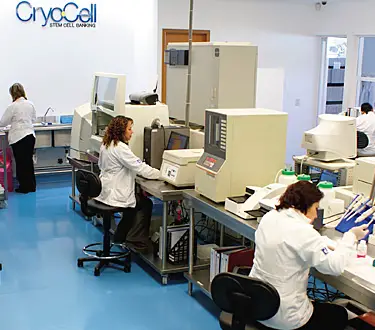Umbilical Cord Blood Banking
Umbilical cord blood banking refers to an effective and economically sustainable system for the collection and storage of cord blood for medical uses. Advantages of umbilical cord blood banking over bone-marrow transplant have increased the demand of cord blood units. In this regard, a large number of cord blood units are stored in the public and private umbilical cord blood banking companies. According to an estimate, more than 160 public and 215 private cord blood banks are working round the globe.
Find in this article our cord blood banking reviews. Furthermore, you have this article about best cord blood banks, so you can note which features are required in an umbilical cord blood banking company to rank among the best.
Umbilical cord is the ribbon-like tissue that connects the fetus to the placenta lying in the maternal womb. During pregnancy, the umbilical cord develops from the remnants of yolk sac and allantois by the fifth week of fetal development. It offers nutrients and oxygen carried in blood from mother to the fetus.

Umbilical cord blood refers to the blood contained in the umbilical cord and placenta immediately after delivery. It is a plentiful reservoir of stem cells, which can grow to different cell lines. Stem cells are unspecialized cells, which develop into all the cells and tissues of the body. Years before, the umbilical cord blood was considered as a waste product of pregnancy. Now a days, it is used to extract stem cells for various medical conditions requiring haematopoietic or non- haematopoietic stem cell transplant. And this is one of the main reasons why this process became so important.
Umbilical cord blood transplantation is an acceptable alternative curative stem cell therapy in many medical conditions such as leukemia, aplastic anemia, neuroblastoma and many others. More than 35000 UCB transplants have been carried out worldwide with successful results from units subject to storage in these institutions.
Usually, bone marrow stem cells are used to replace faulty bone-marrow stems cells in the patients with cancers requiring a haematopoietic transplant. However, cord blood transplant is a newer stem-cell therapy with various advantages over bone-marrow stem cell transplant such as:
- Easy collection, except the rare but sometimes fatal cases of nuchal cord.
- Cost effective, but not free in private banks
- Fast processing and quick availability
- Reduced risk of infection transmission
- Available for those who cannot find a match
- Harmless to mother or child
Other than hematopoietic stem cell transplantation, cord blood banked in umbilical cord blood banking facilities is being used in trials on conditions, which require non-haematopoietic stem cell transplantation such as inborn metabolic disorders, diabetes, epidermolysis bullosa, osteopetrosis, cerebral palsy and stroke.
Umbilical cord blood can be collected from full term healthy babies after vaginal or surgical delivery in a process that lasts just a few minutes except the cases of nuchal cord complications.
Cord blood can be stored in the public or private companies, as we said before. Most often, most of the people prefer the public institutions, such as Carolina, due to their standard and regulatory guidelines.
On the other hand, private umbilical cord blood banking companies are costly and were not strictly subject to regulatory review in the past. Nowadays, that situation has changed as all these organizations are accredited in AAAB. The third type of umbilical cord blood banking organizations are called hybrid banks where public and private sections coexist. One of these cases could be CBR, the Cord Blood Registry. However, hybrid banks suffer from ethical, economical and social controversies.
Advantages of Umbilical Cord Blood Banking
This procedure offers a number of benefits to the family. It guarantees the provision of match for autologous transplant. It means that the company where you store the cord blood of your baby is readily available for your baby when a transplant is needed. Hence, it is a wonderful way to provide people with autologous blood transfusion or stem cell transplant.
Umbilical cord blood banking is timesaving and cost-effective. There is no need to do national or international search in search of matched donors. On the other hand, it is time-consuming and costly to search a matched donor. Moreover, umbilical cord blood transplant is not always cheap. Private banks that provide umbilical cord blood banking services charge huge quantities for the process of collection, transportation, processing and storage of cord blood.
One most important thing is that there is very low or no risk of graft versus host disease (GvHD) with cord blood transfusion. On the other hand, GvHD is one of the common and serious complications of transplants when the donor and recipient are different. Other risk factors for GvHD include advanced age of the donor or the recipient, a woman who had been pregnant in the past, or those who have received peripheral blood stem cells from matched donors. All these, are advantages and important cord blood uses.
Moreover, it is very easy to collect, transport, process and store blood in an institution, and here we include also the cases of cord tissue storage and storage of cord tissue and cord blood. As we explained, the umbilical cord blood banking process does not affect mother or the baby in any way. Cord blood stem cells are more primitive and have greater potential of growing and making healthy blood cells as compared to those from bone marrow cells or peripheral blood stem cells.
In a nutshell, umbilical cord blood banking is an easy, fast and safe source of stem cell transplant. It is a blessing for those people who cannot find matched donor for stem cells transplantation.





